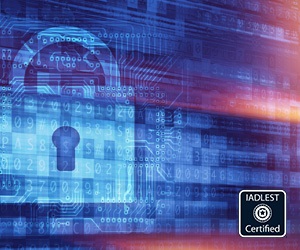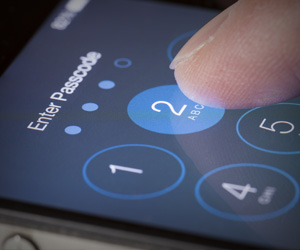
The first module of this course covers fundamentals such as recognizing computer components and their functions, accessing computer firmware, and the startup and shutdown processes. The second module covers how a hard disk drive works, how data is converted into digital information, how to calculate the storage capacity of a device, partitioning and how that is used for storage, and how a solid state hard drive functions.
» Read more
Click here for more information

This course provides an introduction to data encryption, covering the purpose of encryption as well as the process of encrypting data, and clarifying the distinctions between encryption and other operations like password protection and encoding. It explores the confusion, diffusion, and secret key encryption methods. Topics include detecting encryption (including recognition of some of the most popular types of encryption software), as well as proper procedures for law enforcement professionals who detect that encryption may be present on a device.
» Read more
Click here for more information

Trust is an essential component for reducing friction between people, organizations, government, and other entities. When trust is high, people are more willing to cooperate, require less assurances for doing so, and are less skeptical of the outcomes. Unfortunately, today’s climate of manipulated media, deep fakes, conflicting sources of information, and sensationalized news has raised many people’s level of skepticism. This makes building and maintaining trust particularly difficult but also incredibly important. This course will provide an overview of factors that contribute to public trust in law enforcement’s use of current and emerging digital technologies.
» Read more
Click here for more information

This course introduces fundamental concepts and terminology related to computer networks. Topics include the importance of computer networks, types of computer networks, common network components, network topologies and media, the OSI and TCP/IP models of communication, and IP addressing. The course also addresses law enforcement’s role in cybersecurity within the current landscape of digital crime.
» Read more
Click here for more information

This course introduces the history of UAVs and the ways they are commonly used, both legitimately and in relation to a crime, and focuses on the ways law enforcement can gather and analyze evidence involving drones. Topics include gathering evidence both internal and external to the drone, as well as methods for manually processing flight logs and displaying data in Google Earth.
» Read more
Click here for more information

This course addresses the legal issues surrounding mobile digital devices including cell phones and GPS devices. Topics include seizing and searching mobile devices, the process of obtaining both historical and current location information from cellular service providers, and legal process needed to install a GPS unit on a suspect’s vehicle.
» Read more
Click here for more information

In contrast to the other courses in this series, which deal primarily with the acquisition of digital evidence, this course addresses legal issues that appear relatively late in the investigative and judicial process. Topics include the Fifth Amendment as it applies to passwords and login credentials, determining the ownership of files on digital devices, and the admissibility of online evidence.
» Read more
Click here for more information

This course provides a legal overview of what investigators are and are not permitted to do while conducting online undercover investigations. Topics include terms of service, entrapment and outrageous government misconduct, and wiretapping law as it relates to the recording and documenting of online activities. This course also covers defense strategies commonly used to counter online undercover investigations.
» Read more
Click here for more information

This course provides information on obtaining and executing search warrants in cases involving digital evidence, with a focus on the similarities and differences between these and other search warrants. The course covers establishing probable cause, particularity, scope, and nexus; the use of outside experts; and out-of-state warrants for remote evidence.
» Read more
Click here for more information

This course focuses on gathering information from social media sites. Students will learn about popular social media platforms, tools that can help them discover information on them, and ways to capture and save online media. This course is part of the Open Source Intelligence Modules. It can be completed as a stand-alone course or in combination with the other courses.
» Read more
Click here for more information















